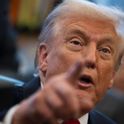Observers of American politics—including Martin Walker, who for many years wrote a Washington column for this magazine—like to say we get the President we deserve. Our popularly elected, term-limited monarch is also a mirror, however clouded, of the nation’s soul—rather, of the roughly six in 10 eligible voters who bother to vote in Presidential elections while the rest stay home. The ratio is even worse in the pre-election marathon of primaries and caucuses. In 2016 the choosing will begin on 1st February, in Iowa, followed on 9th February, in New Hampshire. Both are small states, whose combined population, some 4.4m, is not quite one seventh of California’s. And with luck, some 900,000 of them will cast ballots.
A third state, South Carolina, will hold its crucial primary on 20th February. By then, front-runners could well be established in both parties, while others fall behind or even drop out—all on the basis of what less than 1 per cent of the population thinks in states that aren’t exactly roadmaps of 21st-century America. Iowa and New Hampshire are predominantly rural and more than 90 per cent white. South Carolina only removed the Confederate flag from its statehouse last summer after a mass shooting of African-Americans in a Charleston church.
The question inevitably arises: Is this any way to choose a President? Many think not. “A primary fight, at any level, is America’s most original contribution to the art of democracy,” Theodore H “Teddy” White, the journalist and author, wrote in The Making of the President, 1960, the first in his indispensable series of campaign narratives. It is also, he added, “that form of the art most profanely reviled and intensely hated by every professional who practices politics as a trade.” No exercise so divides each party against itself and supplies so much ammunition to the other side.
Read more by Sam Tanenhaus:
Hillary Clinton: the true outsider
Talking trash with the Republicans
Daniel Patrick Moynihan's tough lessons for liberals
But disruption is the point. Presidential primaries began as a reaction to cynical party bosses, who gathered every four years to anoint one or another pliable mediocrity to represent the party and leave its half-hidden spoils system undisturbed. The “direct” presidential primary, introduced in Wisconsin in the election of 1912, put voters back in charge. The solid-citizens-turned-seasonal-king-makers in Iowa and New Hampshire are notoriously hard to impress, accustomed as they are to measuring candidates up close in living rooms and coffee shops. Some politicians revel in this “retail” product-testing. Others recoil.
But the drama lies elsewhere, in the possibility of the wildfire campaign, the sudden flare-up of politics-as-social movement. It happened in 1964, when Barry Goldwater, the Arizona libertarian, captured the Republican nomination. It happened in 1968, when Eugene McCarthy, tribune of campus anti-war protesters, unseated the incumbent Lyndon B Johnson (see p46). And it happened again in 1972, when the prairie progressive George McGovern led a classic insurgency that was “a masterpiece of partisan warfare,” Teddy White marvelled at the time, “its troops living off the land, tapping veins of frustration everywhere… commanding and creating a net of cells in storefronts, cellars, campuses, kitchens.”
All three were exciting, historic, at moments heroic. But each tribune damaged his own party, which was defeated in the Presidential election when the invisible, “silent majority” of moderates and independents finally spoke.
The irony is that the primary system, created to weed out pretenders and cranks, had become the fresh staging grounds for them. And it’s gotten worse. A new freemasonry of bosses, not party chieftains but members of the autonomous “donor class,” can respirate a struggling candidate—or wear down a weak frontrunner—by pouring in unregulated millions via Political Action Committees. In 2012, the insurgent Newt Gingrich looked to be on life-support, but a $20m transfusion from the billionaire casino owner Sheldon Adelson made him a force. Gingrich made little impression on voters, but his merciless pummelling of Mitt Romney in television ads indirectly helped Barack Obama.
The potential for mischief is even greater in 2016. Democrats aren’t worried. They have a commanding favourite in Hillary Clinton, who seems to be consolidating the party’s factions. But what remains of the Republican “establishment” is frantically trying to head off the self-funded billionaire Donald Trump and the well-financed “courageous conservative” Ted Cruz. Both have deftly exploited the anxieties and prejudices of a Republican base whose long-simmering anti-immigrant, anti-Muslim and anti-government fevers have been fed by the growing threat of terrorist violence at home and abroad.
In such a climate, the danger of the direct primary system is not that it will break down but rather that it will function too well, as the agitated voter, courted and flattered, begins to think himself not just kingmaker but king, and to regard his fellow citizens as subjects—or enemies.












